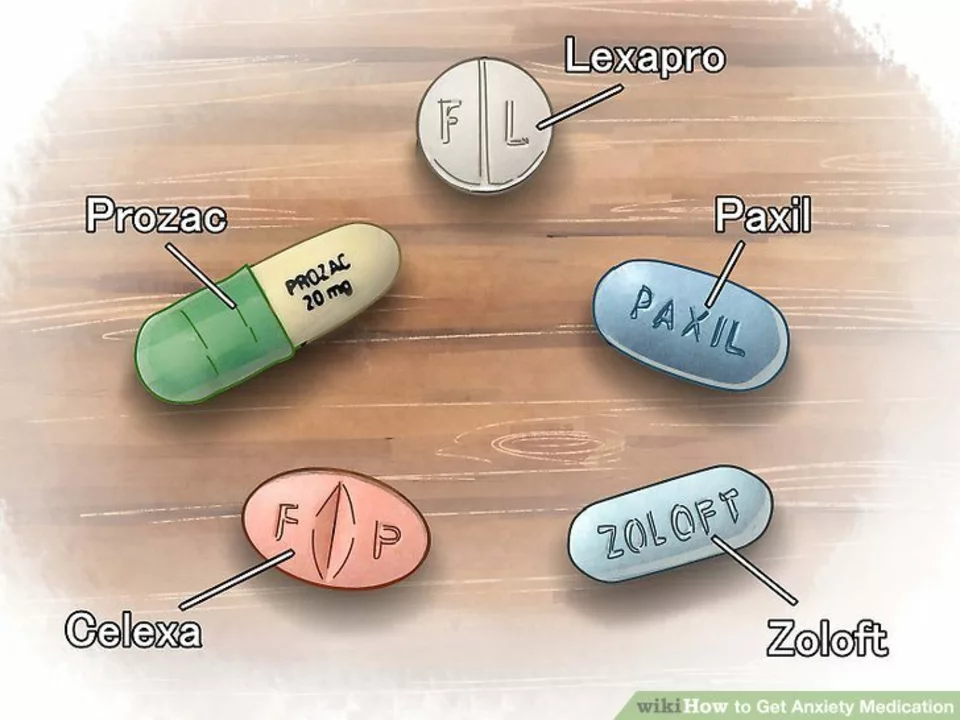Anxiety medication: what works, what to watch for, and safer choices
If you’re dealing with anxiety, medication can help — but what kind and how you take it matters. This page breaks down common anxiety meds, how fast they work, the main risks, and safer ways to buy and use them. No jargon, just usable info so you can talk to your doctor with confidence.
How anxiety meds differ
Not all anxiety drugs are the same. Benzodiazepines (like clonazepam) act fast — often within an hour — and cut panic quickly. But they can cause drowsiness, memory gaps, and dependence if used long term. Antidepressants (SSRIs and SNRIs) such as sertraline or venlafaxine take weeks to help but are safer for long-term control and don’t create the same dependence risk.
Other options include buspirone, which helps generalized anxiety with less sedation, and hydroxyzine, a sedating antihistamine useful for short-term relief without benzodiazepine dependence. Some people use beta-blockers for performance anxiety to reduce physical symptoms like shaking or fast heartbeat.
Choosing, using, and buying safely
Pick a med based on your symptoms, health history, and treatment goals. If panic attacks are sudden and severe, a short benzodiazepine prescription might be useful while waiting for an SSRI to start working. If you’re worried about addiction or job safety, discuss non-sedating options with your prescriber.
Always check interactions: many anxiety meds interact with alcohol, certain pain meds, and other prescriptions. Ask your doctor or pharmacist about side effects, and never mix medications without professional advice. If you stop a medication like clonazepam, taper slowly under medical supervision to avoid withdrawal.
Thinking about buying meds online? Use only licensed pharmacies that require a prescription, show a physical address, and use secure checkout (HTTPS). Look for pharmacy verification like NABP or equivalent depending on your country. Be suspicious of sites selling controlled meds without a prescription — that’s risky and often illegal.
Don’t forget non-drug tools. Therapy (CBT), regular sleep, exercise, cutting back on caffeine, and breathing techniques can change how you feel and reduce medication need. For many people, combining therapy with medication gives the best results.
If you want more specific reads on alternatives to clonazepam, safe online pharmacies, or how to manage side effects, check the related articles on this site. And always bring notes to your appointment: list symptoms, other meds, and any questions you have. That makes the conversation simple and helpful.
Need quick FAQs or help finding reliable pharmacies and treatment options? Use the site search or contact our team — we’re here to point you to trusted information so you can make safer choices for your mental health.
The Relationship Between Buspirone and Weight Changes
- Robin Tudge
- May 27, 2023
- 13 Comments
In my latest research, I've delved into the relationship between Buspirone and weight changes. Buspirone, an anti-anxiety medication, has been found to have a minimal impact on one's weight, with some users experiencing slight changes in appetite. It's important to note that these weight fluctuations are typically temporary and often less severe than those caused by other psychiatric medications. Maintaining a healthy lifestyle, including regular exercise and a balanced diet, can help counteract any minor weight changes experienced while taking Buspirone. Overall, it appears that the medication's benefits in managing anxiety symptoms far outweigh any minor weight-related side effects.
read more
